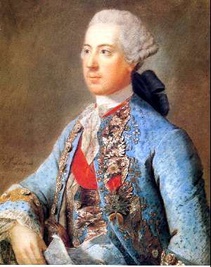
Josef II
Josef II was a reformer who criticized the Church and the old orders, he was a supporter of enlightenment.
He acquired experiences on his trips within Europe and to the monarchy’s countries. He could pride himself on his huge will and diligence. His vision was of a united empire administered by an omnipotent state machinery that would be led by a ruler who would make decisions in the interest of the empire. As did his mother, he endeavored to centralize and uniform the administration of the monarchy, and he made radical reforms to make the Catholic Church the tool of the State.
Josef was the founder of general seminaries and he supervised the education of priests. All the monasteries that weren’t beneficial to the society as a whole were closed down, reducing the power of the Church.
Josef II promoted freedom of thought and religious tolerance, and on October 13th, he declared the equality of citizens. Religious services of the two main protestant branches, the Lutherans and the Calvinists, and
the Roman Catholics were authorized with a few restrictions. Jews were also freed from the old decrees that had discriminated them. He allowed critiques against anybody to be used in books, however the critics couldn’t be anonymous, nor the critiques insulting or defamatory.
All these reforms greatly improved the society of that time, even the relation between the nobility and the peasants changed, thanks to the abolition of serfdom on November 21st 1781. Industrial production was much supported by Josef. In 1789 he reduced taxes to which peasants were subjected and labor obligation was replaced by monetary and in kind payments. Unfortunately, this reform was cancelled after his death.
All these changes greatly affected the nobility and the Church that were both very powerful. Josef was blamed for the manner of execution of his reforms: he didn’t know how to act tactically so he took direct action, in an almost despotic manner. He didn’t take into consideration neither tradition nor customs.







